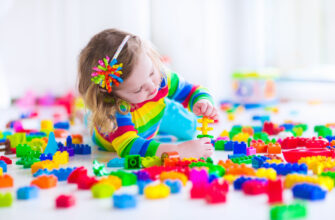
2. You Can’t Ask That, You’re Too Young
The more openly society discusses subjects like sex, death, religion, and war, the more probable it is that youngsters will hear something they don’t understand and ask their parents to explain it to them. Keep in mind that this is a good thing! Definitely encouraged, and hopefully continuing in the future, is an open dialogue.
A youngster deserves an answer if they are able to ask one, regardless of how difficult it may be. Naturally, a parent can adjust their response based on the child’s age and emotional development to make sure they will understand the solution. Really, a simple inquiry simply needs a simple response. Multiple interactions over time may be necessary for more complex responses.
Parents may respond with “You’re too young” or “Why do you want to know” if a subject is posed at an inappropriate time or takes them off guard. However, it would be preferable to recommend that you talk to them later on when it’s more convenient. Additionally, it will offer parents more time to think through their response rather than rushing to provide it.
3. You’re Quite Dramatic
Even if you are confident that your child’s conduct is excessive, calling them “dramatic” when they are really trying to express themselves might have detrimental long-term effects.
Children turn to their parents to learn how to control their emotions. Therefore, if parents instill in them the notion that their feelings are stupid, the children will grow up to be people who share this viewpoint.
4. You Did Ok, But You Could Have Done Better
First off, it’s best to avoid compliments that end in “but” because they lose their intended meaning. Children might be inspired to do well all the time by celebrating minor triumphs. Using the word “but” will give them the impression that they haven’t really done enough to earn your pride, which will undoubtedly cause more harm than good.
Instead, attempt to say: “I’m pleased with you because you did well. You’ll surely keep improving, in my opinion!”
5. You’re Exactly Like Your Dad/Mom
The offense is compounded when a parent harbors unfavorable feelings and thoughts towards their partner toward their shared child. It devalues both the child and the partner, bringing both down a notch.
Any negative comparison will certainly hurt if the youngster is already aware of the level of disrespect and hostility between the parents. The remark “You’re just like your mother/father,” especially if said in anger, will indicate to a child that the parent is unhappy with the relationship even if they are ignorant of any conflict.
A parent unintentionally alienates their partner and child when they use this term. Therefore, not only does it turn into a situation of one against two, but the parent is also essentially telling their child that they remind them of someone they don’t like. The youngster is consequently placed in a very delicate situation between their parents. Additionally, they could feel crippled by guilt whenever the parent to whom they were compared was later disparaged.








